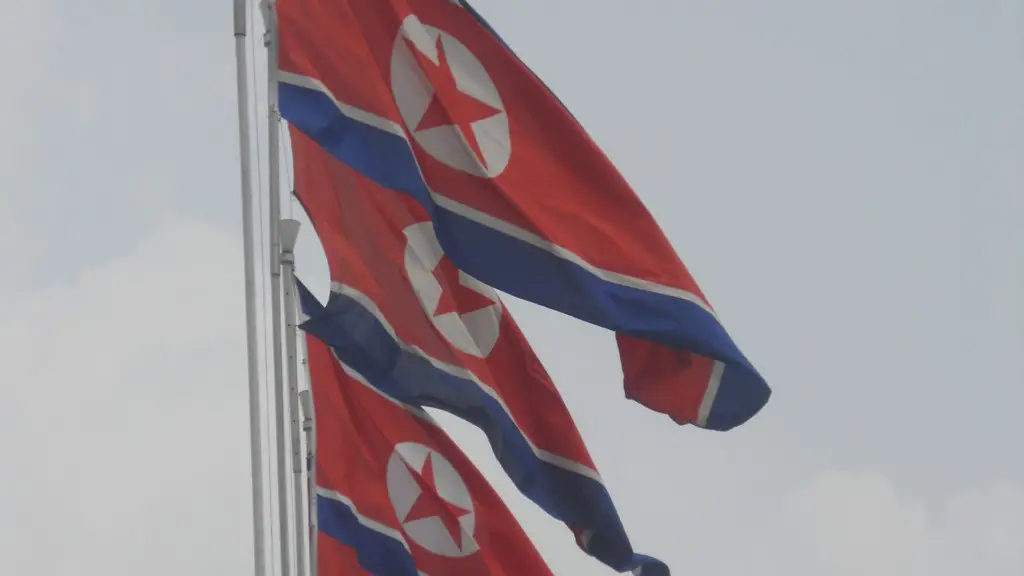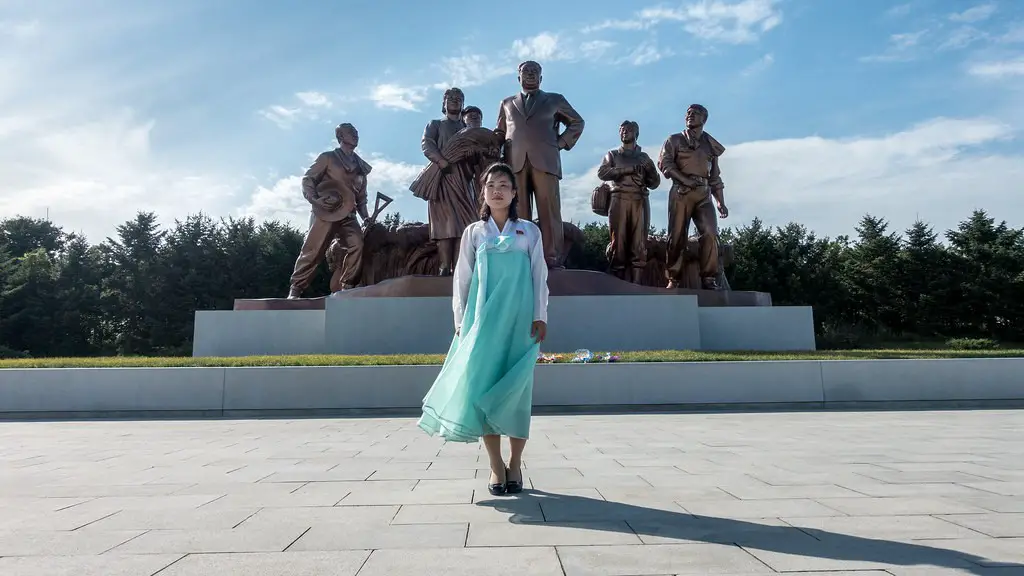Historical Context of North Korea-Japan Relations
Japan and North Korea have long complicated relations due to the Japanese colonization of the Korean peninsula in the early 1900s. The Japanese occupation of the Korean peninsula has left a long lasting legacy of acrimony and distrust between the two countries. This has resulted in Japan and North Korea becoming enemies. North Korea’s abduction of Japanese nationals began in 1978, as retaliation for Japan’s occupation. North Korea has denied any involvement in the kidnappings, but speculation remains high.
The abductions are believed to have served several purposes. Firstly, to help North Korea expand its intelligence operations. Secondly, to help North Korea undermine Japan’s security by introducing North Korean agents within the country. Lastly, the abductions have been seen as an attempt by the North Koreans to pressure Japan into providing economic assistance, including oil and food, in exchange for the abducted Japanese.
The last known abduction, of 17-year-old Megumi Yokota, happened in 1977, and is considered to be the most famous one. Yokota was taken from Niigata, Japan and taken to North Korea, and she is still missing. Her parents campaigned for her return, and finally in 2002 she was declared dead by the North Korean government. Since then, Japan has been dealing with the issue of abduction of its citizens, and many families still remain hopeful that their missing loved ones will one day return.
North Korea has denied any involvement in the abductions and there is only circumstantial evidence that suggests that the kidnappings were state-sponsored. However, some reports claim that the abductions were initially sanctioned by the higher-ups in the North Korean government, and were then carried out by agents of the intelligence service. According to these reports, the families of the abducted people were kept in the dark, but the victims were then taken to North Korea, where they were put through a period of indoctrination.
In the past few years, Japan has been attempting to uncover more information about the abductions and the fate of the victims. In addition, the Japanese government has imposed sanctions on North Korea in an attempt to pressure the North Korean government into revealing more information and eventually allowing the return of the abducted people. Unfortunately, there have been no concrete results from these efforts and it is still unclear when, if ever, the abductions will cease.
What Could be the Motives Behind North Korea Kidnapping Japanese?
It is not clear why North Korea continues to kidnap Japanese citizens, but some analysts suggest that it could be a way to weaken Japan’s security capabilities. By introducing North Korean agents into the country, North Korea may be trying to gain a better understanding of Japan’s security practices and operations. In addition, the kidnappings could also be an attempt to put pressure on the Japanese government to provide economic assistance to North Korea.
Another theory proposes that the abductions are being used as a means of manipulating public opinion in Japan. By kidnapping Japanese citizens, North Korea may be trying to gain political leverage and to create an atmosphere of fear and anxiety in the country. However, this is still purely speculation, and North Korea has not offered any official explanation for the abductions.
Experts also believe that North Korea’s abductions could also be a form of psychological warfare, designed to weaken the morale of the Japanese people. By targeting the most vulnerable members of the population – the elderly, young women, and others – North Korea could be attempting to send a message to the Japanese people that their safety and security are not guaranteed.
Lastly, North Korea may be attempting to demonstrate its strength and power through the abductions. By abducting people from a foreign country, North Korea could be trying to show that it is capable of carrying out risky and daring operations, as well as demonstrating its defiant attitude to the international community.
What Legal Action Have the Japanese Been Taking on This?
Over the years, the Japanese government has taken various steps to address the issue of abductions. In 2000, the Japanese government established the Investigation Commission on Missing Japanese Probably Related to North Korea (COMJAN) to investigate the fate of abducted Japanese citizens. The government has also imposed a range of economic and trade sanctions on North Korea in an attempt to pressure the North Korean government into revealing more information about the abductions.
In addition, the Japanese government has also brought the issue of abductions to the United Nations, and has sought the assistance of other countries in pressuring North Korea to disclose information about the abductions. However, this has so far yielded no concrete results, and North Korea continues to deny any involvement in the kidnappings.
The Japanese government has also granted the families of the abducted people some financial assistance. This includes providing compensation for their loss, as well as providing psychological support for affected families. However, this assistance is still limited and the majority of families are still struggling to cope with the loss of their loved ones.
What Can be Done to Prevent Further Abductions?
There is no easy solution to the problem of abductions in Japan, as the issue is complex and has many different factors that need to be taken into account. The Japanese government needs to continue its efforts to pressure the North Korean government into revealing more information and allowing the abducted people to return. However, in the event that North Korea remains unwilling to cooperate, the Japanese government may need to look for other diplomatic solutions.
The international community can also play an important role in addressing the issue of abductions. Countries such as the United States, China and South Korea can use their influence to pressure the North Korean government into making concessions. In addition, countries such as Japan can also provide economic assistance to North Korean defectors, as this could potentially lead to better understanding between the two countries.
It is also important to raise awareness about the abductions. The Japanese people need to understand the gravity of the situation and the suffering of the families of the abducted people. The international community should also be aware of the situation and apply pressure on North Korea to address the issue.
Public Outcry Over North Korea-Japan Abductions
The issue of abductions has become a staple issue for the Japanese media, and this has led to an outpouring of public outrage and sympathy for the victims and their families. Several political campaigns have been organized, calling for North Korea to return the abducted people and for the Japanese government to continue its efforts to uncover more information. In addition, charities and advocacy groups have been established to provide support and assistance to the families of the abducted people.
There have also been numerous protests and marches, organized by the families of the abducted people and their supporters, demanding that the Japanese government take further action and that North Korea reveal more information about the abductions. These protests have received extensive media coverage, as they serve as a reminder of the plight of the abducted people and their families.
The abductions have also become an important political issue in Japan. Politicians often use the issue of abduction to garner support and rally the public to their cause. In 2018, the ruling political party in Japan, the Liberal Democratic Party, introduced the “North Korea Abduction Special Measures Law”, which is designed to provide further assistance and support to the families of the abducted people. This law is seen as a positive step towards resolving the issue of abductions.
North Korea’s Denial of Involvement in Abductions
North Korea has consistently denied any involvement in the abductions, and has claimed that the victims have either died of natural causes, or have chosen to remain in North Korea willingly. In addition, North Korea insists that the Japanese government is responsible for the abduction of the Japanese nationals, because the Japanese government supposedly allowed its citizens to enter North Korea illegally.
In 2002, the North Korean government conducted an “investigation” into the abductions and declared that the investigations had revealed no evidence of involvement by the North Korean government in the abductions. However, they did not provide any further evidence or proof to substantiate their claims, and their denials remain unconvincing.
In recent years, the North Korean government has made some attempts to address the abductions. In 2008, North Korea admitted to the abductions and issued what has been referred to as a “confession”. This confession did not provide any concrete information about the fate of the abductees, and only served to prove that North Korea was indeed involved in the abductions.
In addition, North Korea has also allowed some of the abductees to travel to Japan to visit their families. However, it is still unclear whether these visits were voluntary or not, and the North Korean government has yet to provide any tangible information about the abducted people.
Risks Involved in Involving in Abductions
The abductions pose a serious security risk to the Japanese people, as they are vulnerable to exploitation by North Korea. This includes the risk of being coerced or pressured into espionage or other illegal activities. In addition, the abductees could also be subjected to psychological manipulation, in order to indoctrinate them into accepting North Korean ideology and values.
The abduction of Japanese citizens also serves to further damage the already hostile relations between North Korea and Japan. The abductions have created a deep mistrust between the two countries, making it even more difficult to bridge the gap between them. In addition, the abductions have further fueled anti-North Korean sentiment among the Japanese people, making the prospects of peace even more remote.
The abductions have also created an atmosphere of fear and insecurity among the Japanese people. The abduction of Megumi Yokota and other Japanese nationals has reminded the Japanese people of the risks that they are vulnerable to. This in turn has caused the Japanese people to be more cautious when travelling abroad, out of fear of becoming the next victim of a North Korean abduction.
Raising Awareness About North Korea-Japan Abductions
Raising public awareness remains an important step in addressing the issue of abductions. It is important that the Japanese public is made aware of the risks that they face, and the ways in which they can protect themselves. In addition, the Japanese government should continue to take steps to address the issue of abductions, in order to protect its citizens and to help bring closure for the families of the abducted people.
The international community should also amp up efforts to address the issue of abductions and to pressure North Korea into revealing more information. Sanctions should be strengthened and other diplomatic means should be adopted to hold North Korea accountable for its actions. In addition, the international community should continue to support the families of the abducted people and ensure that they receive the assistance and support that they need.
Finally, there needs to be an effort to strengthen ties between Japan and North Korea. By engaging in dialogue and finding common ground, the two countries can better understand each other’s perspectives and take steps towards improving their diplomatic relations. This could eventually lead to an end to the tense situation between the two countries, and bring closure to the families of the abducted people.





